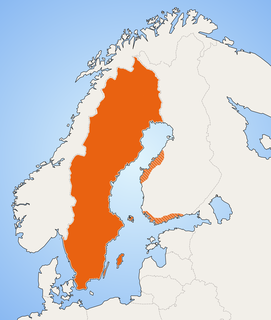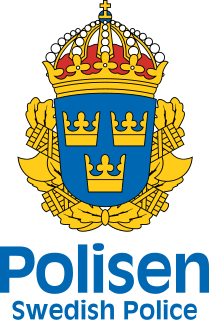
Closed-circuit television (CCTV), also known as video surveillance, is the use of video cameras to transmit a signal to a specific place, on a limited set of monitors. It differs from broadcast television in that the signal is not openly transmitted, though it may employ point to point (P2P), point to multipoint (P2MP), or mesh wired or wireless links. Though almost all video cameras fit this definition, the term is most often applied to those used for surveillance in areas that may need monitoring such as banks, stores, and other areas where security is needed. Though Videotelephony is seldom called 'CCTV' one exception is the use of video in distance education, where it is an important tool.

In espionage and counterintelligence, surveillance is the monitoring of behavior, activities, or other changing information for the purpose of influencing, managing, directing, or protecting people. This can include observation from a distance by means of electronic equipment or interception of electronically transmitted information. It can also include simple no- or relatively low-technology methods such as human intelligence agent and postal interception. The word surveillance comes from a French phrase for "watching over" and is in contrast to more recent developments such as sousveillance.
The Data Protection Directive was a European Union directive adopted in 1995 which regulates the processing of personal data within the European Union. It is an important component of EU privacy and human rights law.

Mass surveillance is the intricate surveillance of an entire or a substantial fraction of a population in order to monitor that group of citizens. The surveillance is often carried out by local and federal governments or governmental organisations, such as organizations like the NSA and the FBI, but it may also be carried out by corporations. Depending on each nation's laws and judicial systems, the legality of and the permission required to engage in mass surveillance varies. It is the single most indicative distinguishing trait of totalitarian regimes. It is also often distinguished from targeted surveillance.

The National Defence Radio Establishment is a Swedish government agency organised under the Ministry of Defence. The two main tasks of FRA are signals intelligence (SIGINT), and support to government authorities and state-owned companies regarding computer security.
Privacy law refers to the laws that deal with the regulating, storing, and using of personally identifiable information of individuals, which can be collected by governments, public or private organizations, or other individuals.
The Ministry of Justice is a Cabinet-level ministry of the Government of Sweden which handles matters relating to the justice system, such as legislation concerning the constitution, as well as law enforcement and counter-terrorism procedures. All Swedish law enforcement agencies, as well as the prosecution authorities, the prison and probation service and the National Council for Crime Prevention answer to the Ministry of Justice. In addition to handling constitution-related legislation, the Ministry is responsible for legislation and procedures relating to administrative law, civil law, procedural law and criminal law. The Ministry also deals with matters relating to migration and asylum policy. Internationally, the Ministry of Justice takes part in efforts to co-operate with other nations in order to combat cross-border crime. It is located in the government chancellery Rosenbad in Stockholm.

The European Data Protection Supervisor (EDPS) is an independent supervisory authority whose primary objective is to ensure that European institutions and bodies respect the right to privacy and data protection when they process personal data and develop new policies.

Forensic profiling is the study of trace evidence in order to develop information which can be used by police authorities. This information can be used to identify suspects and convict them in a court of law.
Privacy law in Denmark is supervised and enforced by the independent agency Datatilsynet based mainly upon the Act on Processing of Personal Data.
The General Data Protection Regulation(EU) 2016/679 ("GDPR") is a regulation in EU law on data protection and privacy for all individuals within the European Union (EU) and the European Economic Area (EEA). It also addresses the export of personal data outside the EU and EEA areas. The GDPR aims primarily to give control to individuals over their personal data and to simplify the regulatory environment for international business by unifying the regulation within the EU. Superseding the Data Protection Directive 95/46/EC, the regulation contains provisions and requirements pertaining to the processing of personal data of individuals inside the EEA, and applies to an enterprise established in the EEA or—regardless of its location and the data subjects' citizenship—that is processing the personal information of data subjects inside the EEA.

The use of electronic surveillance by the United Kingdom grew from the development of signal intelligence and pioneering code breaking during World War II. In the post-war period, the Government Communications Headquarters (GCHQ) was formed and participated in programmes such as the Five Eyes collaboration of English-speaking nations. This focused on intercepting electronic communications, with substantial increases in surveillance capabilities over time. A series of media reports in 2013 revealed bulk collection and surveillance capabilities, including collection and sharing collaborations between GCHQ and the United States' National Security Agency. These were commonly described as mass surveillance. Similar capabilities exist in other western European countries, such as France.

The Swedish Data Protection Authority is a Swedish government agency, organized under the Ministry of Justice, tasked to protect the individual's privacy in the information society without unnecessarily preventing or complicating the use of new technology. The agency ensure legislation within this area is complied with and as such supervise different registers and carry out inspections of companies, organizations and other government agencies; led by the agency's own IT security specialists and legal advisors. The most important legislation is the Personal Data Act of 1998, the Debt Recovery Act of 1974 and the Credit Information Act of 1973. The agency also has an expert advisory role when the Government prepares new statutory provisions.
Giovanni Buttarelli is the European Data Protection Supervisor (EDPS). On 4 December 2014, he was appointed by a joint decision of the European Parliament and the Council. He will serve a five-year term in this position. Previously, he served as Assistant EDPS, from January 2009 until December 2014. He is also a member of the Italian judiciary with the rank of judge of the Court of Cassation.

The Data Protection Act, 2012 is legislation enacted by the Parliament of the Republic of Ghana to protect the privacy and personal data of individuals. It regulates the process personal information is acquired, kept, used or disclosed by data controllers and data processors by requiring compliance with certain data protection principles. Non compliance with provisions of the Act may attract either civil liability, or criminal sanctions, or both, depending on the nature of the infraction. The Act also establishes a Data Protection Commission, which is mandated to ensure compliance with its provisions, as well as maintain the Data Protection Register.
The Data Act is the world's first national data protection law and was enacted in Sweden on 11 May 1973. It went into effect on 1 July 1974 and required licenses by the Swedish Data Protection Authority for information systems handling personal data.
The Dutch Data Protection Authority is the data protection authority for the Netherlands and an independent administrative body that has been appointed by law as the supervisory authority for the processing of personal data. The organization is therefore concerned with privacy. The duties of the AP derive from the Data Protection Directive that applies to all countries of the EU. This directive has been replaced by the General Data Protection Regulation. The Implementation Act General Data Protection Regulation has replaced the Personal Data Protection Act and appointed the AP as supervisor. All EU Member States have their own body, similar to the AP.













